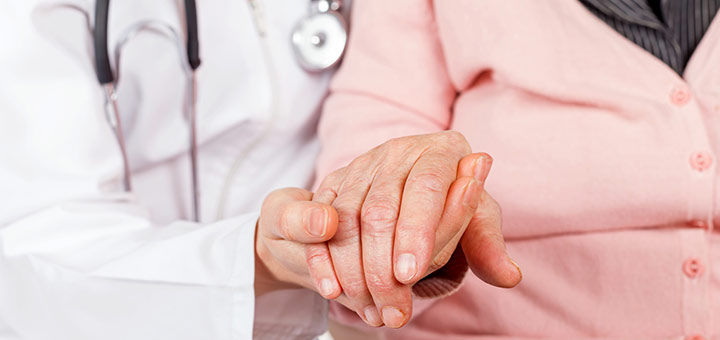I’m always surprised at how little is known about the autoimmune disease lupus. When I’ve mentioned it to patients (and, sadly, to others in the health profession), they seem to have heard of it but are not aware of the symptoms. Lupus (Systemic lupus erythematosus or SLE) is a chronic autoimmune disease that affects up to 60,000 people in the UK. In lupus, your immune system attacks your body’s cells and tissue, resulting in inflammation and tissue damage. Lupus can affect any part of your body but it most often damages the heart, joints, skin, lungs, blood vessels, liver, kidneys and nervous system.
Women are more at risk of developing lupus but it can occur at any age. People of Afro Caribbean and Asian origin are more likely to develop SLE than Caucasians. The disease often follows a pattern of flare ups and remissions. Lupus can be managed with medication (and some of the symptoms can be relieved by manual therapy) but there is currently no cure. Although there is a growing body of research on lupus, its cause has not yet been pinpointed but it is thought to be a mix of genetics, environmental triggers and reactions to drugs. Lupus is not infectious or con- tagious.
The superb charity Lupus UK, based in Romford, offers a wealth of information on the disease – I highly recommend them as a source of information and support (and a great charity to raise money for). Lupus UK list the major symptoms as joint and muscle pain with extreme tiredness plus, possibly, a pattern of rashes, depression, anaemia, feverishness, headaches, hair loss and mouth ulcers.
Most people with lupus will experience joint and muscle pain at some point. The joints in the hands, wrists and knees are particularly susceptible to painful inflammation (arthritis) which restricts the functioning of the joint. As well as managing the inflammation with anti inflammatory or steroid medication prescribed by your GP, lupus arthritis responds well to gentle manipulation to restore the joints to a more normal position.
Lupus can weaken muscles and serious cases cause inflammation of the muscles themselves (myositis) which requires urgent medical attention. Lupus can also involve the less severe but equally distressing condition of fibromyalgia (painful and tender muscles).
Sadly the drugs used to treat lupus can, in the long term, damage your bones and muscles. Long term use of steroids can cause osteoporosis, reduce the blood supply to your bones and cause muscle inflammation, although doctors are well aware of these problems and will work with you to manage your medication.
I’ve only come across a couple of cases in my career (I immediately recommended my new clients go to their GP for a diagnosis) but it’s such a debilitating condition that more people need to be aware of it. The Lupus Foundation of America recognises that chiropractic adjustments relieve the muscle spasm and backache associated with lupus, although I must stress that lupus is a serious condition that must be co-managed with your consultant or GP as my clients were and have been in an off manner since initial diagnosis. Lupus patient groups have also reported that massage can help to alleviate the muscle pain.
People with lupus are particularly sensitive to sunlight and need to take measures such as wearing clothing with a high SPF. Carrying extra weight will also increase the pressure on your joints and so aiming for a healthy weight is recommended. Explaining your condition to friends, family and colleagues will also help them to understand if you suffer from stress or depression due to your condition or need assistance due to pain and restricted movement. Lupus UK offers some very good fact sheets that you can download for free from its website.
At the first sign of a flare up (eg increased fatigue, pain, rash, fever, abdominal discomfort, headache and dizziness) lupus patients are recommended to contact their GP to help proactively manage the symptoms.
* Lupus Foundation of America,
Premiere Issue, fall 2003
Lupus UK 01708 731251 – www.lupusuk.com
St Thomas’ Lupus Trust – www.lupus.org.uk
The London Lupus Centre – www.thelondonlupuscentre.co.uk
Fibromyalgia Association UK – www.fibromyalgia-associationuk.org

